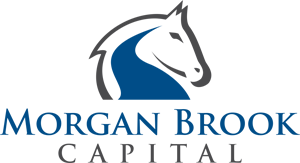Private equity has historically been an investment tool for people with substantial wealth. The term private equity actually covers a number of different types of transactions, from venture capital to distressed private funding. In the near future, these types of capital may be much more available to everyday investors.
In early June, the Department of Labor published a letter that detailed how some retirement plan sponsors could place money in private equity investments under existing rules. This includes 401(k) accounts, the most common type of employer-sponsored retirement account. The letter means that individuals may be able to invest in vehicles that were formerly reserved for large institutional investments and the ultra-wealthy to boost their retirement savings.
According to the Department of Labor statement, this new guidance is meant to level the playing field for everyday investors and ensure they have access to the opportunities they need to build a robust nest egg for retirement. While the letter has generated a significant amount of excitement, there is no clarity about when the managers of retirement plans will start offering opportunities based in private equity.
Vanguard and Fidelity, two of the largest 401(k) managers in the United States, have not yet commented on the letter or announced any plans to make these investments more readily available to their investors. This could be due to several issues, including different regulations with private equity when compared to more traditional investments.
The Impact of New Private Equity Opportunities

Various regulators and consumer advocates have already voiced concerns about broadening access to private equity deals since the businesses included do not have to disclose their finances in the way that public companies do. This lack of disclosure is one of the primary drawbacks of private equity investing and could expose everyday investors to greater risk than they intend with their retirement savings.
Managers of retirement accounts will likely need to be able to communicate the risks involved with this sort of investing effectively prior to making them available through 401(k)s and other accounts. At the same time, there has been considerable excitement about potential gains from new investment opportunities potentially opening up in the near future.
In recent years, private equity managers have been able to raise record amounts of money to invest. As of the middle of May, 2020, American fund managers collectively controlled about $914 billion according to Preqin, an investment data firm. This money largely comes from wealthy individual clients, although some key pension funds also contribute.
For example, the Texas County and District Retirement System puts its money in funds overseen by private equity firms. However, the trend away from traditional pensions and toward defined contribution plans like 401(k)s means that few employees have access to private equity. The announcement means that private equity funds may have even more money to invest in the near future while opening up new avenues for diversification among employees.
The Risks Posed by Private Equity Investments
It is well understood that portfolio diversification makes nest eggs more stable. Furthermore, private equity investments in growth businesses and startups can produce significant returns. In the 10 years that ended in September 2018, the top 25 percent of private equity funds earned a return of 16.2 percent. This kind of growth could significantly increase retirement savings in the United States.
At the same time, high growth rates equate to high risk. As discussed above, the investments are often quite opaque, since companies are not forced to disclose as much information if they are not publicly traded. However, other risks exist. Private equity investments are less liquid than traditional equity and the investment is often untouchable for up to a decade at a time. While this doesn’t matter as much for younger individuals, it could cause issues for people close to retirement.
Perhaps the most dangerous issue for the retirement investor is the possibility of losing big. Private equity pays off when the startup is a company like Snapchat or Twitter, but many companies do not make it. A good chunk of private equity funds have had negative returns.
Not long ago, a securities commissioner demonstrated before the Securities and Exchange Commission that more than 1,000 investors had collectively lost more than $100 million in private equity deals gone wrong. These number came from a review of 100 enforcement actions over the course of two years and represents only a part of the money lost. These dangers are serious, but everyday investors also deserve some sort of access to private equity.
The Need for Greater Access to Private Equity
Today, half as many public companies exist compared to a couple of decades ago, so most investors have significantly fewer places to invest. In general, the Securities and Exchange Commission has supported the expansion of access to private equity. The agency created special investment vehicles for this purpose that work similarly to mutual funds.
However, only accredited investors, meaning those with $1 million or more in assets or at least $200,000 in annual income for the past two years (or $300,000 for couples filing jointly) , can participate in private equity deals. Rules were proposed in December to relax this requirement, but this effort seems to have stalled. Moving forward, it seems like retirement accounts may be the best way for everyday investors to get involved with private equity.

